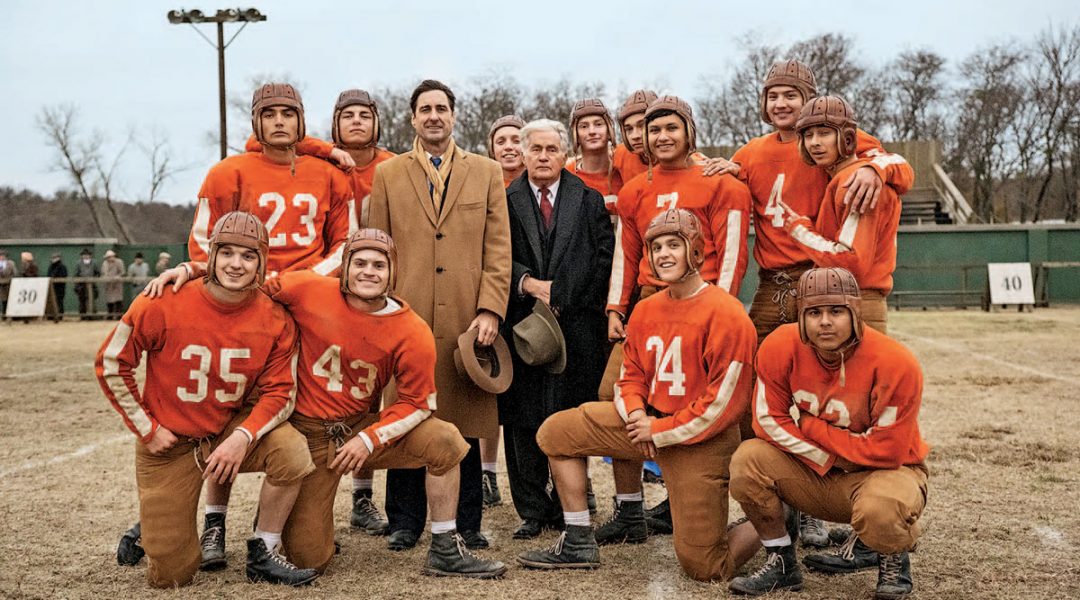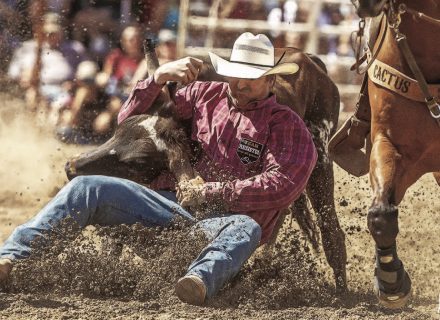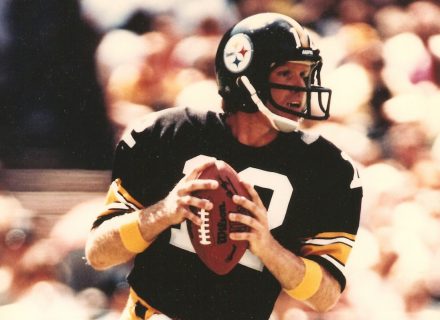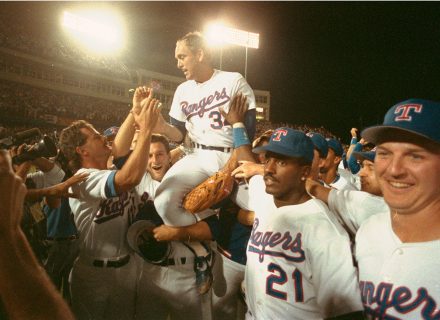12 Mighty Orphans, about a little Texas football team that could, drafts A-listers Luke Wilson, Martin Sheen, and Robert Duvall.
If 12 Mighty Orphans weren’t based on real-life events, the new indie movie from director and co-writer Ty Roberts (The Iron Orchard) might be dismissed as formulaically uplifting Hollywood fiction. That is, too good — or too feel-good — to be true.
Consider this scenario: At a time when America was battered and bruised by the unforgiving ravages of the Great Depression, a ragtag team of underdog teens from a Fort Worth orphanage attracted national attention — and inspired millions through coverage in ’30s mass media — by playing, and defeating, scads of bigger and better-equipped opponents while competing for a state championship. Led by legendary coach Rusty Russell (played in the film by Luke Wilson), the Mighty Mites of the Fort Worth Masonic Home and School were supported and celebrated by such luminaries as Fort Worth Star-Telegram publisher Amon Carter (Treat Williams) — and Carter’s close, personal friend, President Franklin D. Roosevelt (Larry Pine).
Adapted by Roberts and Iron Orchard star Lane Garrison (who appears here as the ferociously amoral coach of a rival team) from sportswriter Jim Dent’s well-regarded book Twelve Mighty Orphans: The Inspiring True Story of the Mighty Mites Who Ruled Texas Football, 12 Mighty Orphans was filmed on location in Texas in the fall of 2019, with the hope of reaching theaters in 2020. But COVID-19 intervened. And now it arrives at a time when, hey, maybe America needs another heaping helping of uplift. 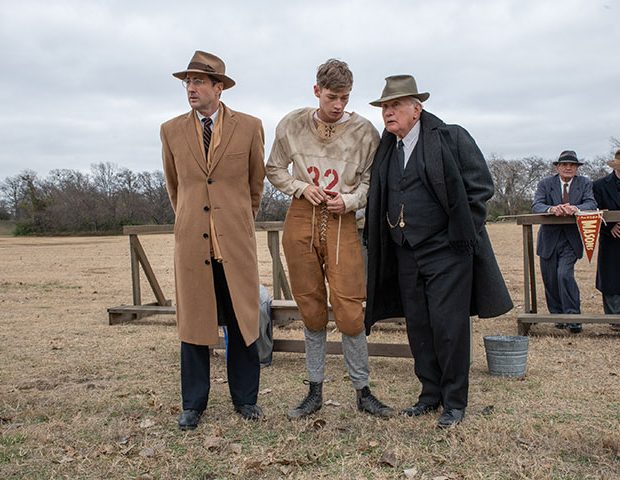
“If you look at the story,” Roberts says, “you’re looking at the Great Depression. You’re looking at a time in American history when we were down on our knees. And very few people alive today had truly experienced that until recently. With the pandemic now, and all the social changes that we’re going through, this story resonates on a societal level that I think is important to reflect upon.”
It’s a story that, even back in the pre-pandemic days of 2019, was sufficiently compelling to interest costars of the caliber of Martin Sheen — cast as Doc Hall, a hard-drinking but big-hearted doctor who served at the orphanage for more than 30 years without ever taking a paycheck, and served as Russell’s assistant coach — and C&I reader favorite Robert Duvall, cast in a cameo as Mason Hawk and reunited on screen with Sheen for the first time since Apocalypse Now (1979).
“Look,” Roberts says, “when you’ve got Duvall and Sheen — when you got both of those guys on set — you have to pinch yourself and ask yourself if you’re really seeing what you’re seeing. Because to me, that was like, Wow. We’re making a movie for real. I couldn’t have asked for two better veteran actors, man.”
With all the social changes that we’re going through, this story resonates on a societal level that I think is important to reflect upon. - Ty Roberts
Roberts was every bit as excited to land Luke Wilson, with whom he forged a friendship back when he served as an assistant cameraman on The Wendell Baker Story (2005), a delightfully droll comedy which the actor co-directed with brother Andrew Wilson, and in which he acted opposite brother Owen Wilson.
“Just being from Dallas,” Luke Wilson says, “it was really fun to be familiar with all these small Texas towns, and just the physical landscape of the countryside. And also knowing those kinds of people.”
But wait, there’s more: “One thing I didn’t think about until after I did the movie was, I have friends that make fun of me for not being a sports fan. They’ll say, ‘Don’t ask Luke. He doesn’t know anything about sports. He’s into music.’
“Well, actually, I am into sports. Maybe I don’t know which team’s No. 1, or this person’s stats or that person’s stats. But I read a lot of books about sports. And most of the sports books I’ve really enjoyed have been about coaches. I have always been interested in coaches, I guess, because being a coach is probably like being a director. The big difference is, you’re in charge of these young people. You’re older than them. They’ve come from the inner city, or they’ve come from the country, or the suburbs. And they’re all on this one team together. And you live together, you travel together. And you lead them.”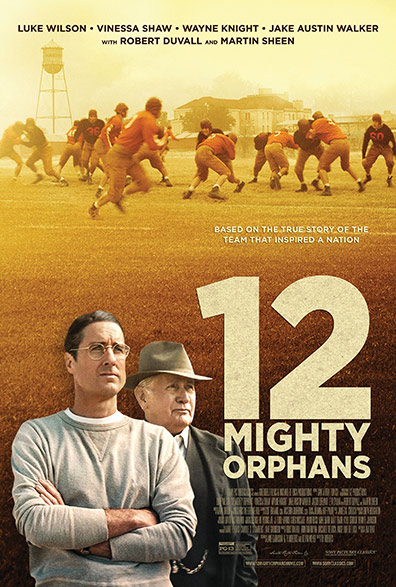
While he was growing up in Dallas, Wilson says, Dallas Cowboys coach Tom Landry “was always a big deal. So you knew a lot about him, and just the way people talked about him. So just the idea of coaching always appealed to me then.”
And on a more personal level, “I had a great football and track coach at St. Mark’s, my school in Dallas — Jerry Reese. And he was just such a good person. Looking back, I can’t imagine what it was like dealing with a group of kids like us. I mean, you’ve got these teenagers that are going to school, they’re growing physically, they’re getting interested in girls. They’ve got all this stuff going on. And then you’re trying to impart some wisdom and get them to learn some plays, and do their homework, and work with one another.
“And Jerry Reese, this guy was really an important part of my life. And he got me to do things I didn’t think I’d be capable of. He got me to run the 800 meters when it was known as a terrible, grueling race. And then I kind of excelled at it, and it became something I really was proud of, doing well at that. I thought of him while playing Rusty Russell.”
Like Ty Roberts, Wilson believes that despite the delay in its release — maybe even because of the delay in its release — 12 Mighty Orphans, which is set to open June 11 in Texas and June 18 in other markets, might be the right movie at the right time for audiences only now inching back to normal after more than a year of coping with COVID-19.
“We finished the movie in November of 2019,” Wilson says, “and then the pandemic hit in March. And here we are, and I’m thinking, ‘Gosh, here’s a movie that has a good message.’ It’s not political. I mean, yeah, it does kind of handle some interesting issues about poverty and things like that. But, really, it’s kind of a feel-good movie about persevering. And I find myself thinking, ‘This is a good movie for these times.’
“It was back when we finished it. And it still is.”
Find out more about the movie from Sony Pictures Classics
Photography: (Cover image) Laura Wilson/courtesy Sony Pictures Classics
From our May/June 2021 issue






